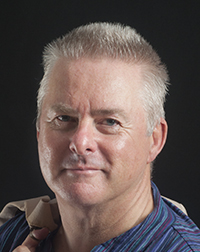

M.B. Ch.B. M.R.C.P.(UK)
Consultant in General Medicine
& Chest Medicine
Reiki Master, Karuna Master,
SKHM Teacher
The Five Principles of Reiki
1. Just for today, don’t get angry.
It may seem impossible in our stressful, chaotic lives that a day could pass without getting angry at something. There’s no advantage in denying that we feel angry, but we can certainly change our attitude to that anger. Anger is a warning system. If we see it as such, we will listen to it, and try to uncover its message. This involves acknowledging that it exists, expressing it in some appropriate form, exploring its origins, and taking responsibility for it. Finally, it means letting it go.
Underneath all anger is a pain that needs to be healed, a need that wants to be satisfied; an action that demands to be carried out. Once the energy behind the anger is turned into a meaningful action, the anger stops.
Most of us don’t do this. We feed our anger, we rage at feeling out of control and blame others for our sense of powerlessness. So the anger never goes. It is merely stored away, unchanged, in our memories, our energy systems, and the cells of our bodies. There to wreak its havoc.
The first principle could be written: For today, don’t just get angry. Do something with that anger. Transform it, use it. Explore that anger, understand it; use Reiki to heal it and release its energy. Aggression dwells in the root chakra; using Reiki to heal and develop the root chakra can open up a source of an enormous amount of power.
Many of the principles include the phrase 'Just for today'. This means that we should be trying to live in the present, in the Now.
2. Just for today, don’t worry.
At times, all of us have difficulty in expressing our emotions. We don’t realise what is causing us to feel anxious or upset or unwell. Sometimes, there is a part of us that knows, but the other parts stop this knowledge from reaching full consciousness.
Often, underneath anxiety is the fear of rejection and abandonment, yet these feelings of self-doubt and lack of self-worth are often the hardest of all to admit, even to ourselves. We go to great lengths in order to deny and bury these feelings. Many anxieties are rooted in childhood, when we were indeed vulnerable and powerless and unable to control events. To change these deep-seated beliefs about our own powerlessness, which persist in many cases unchanged into adult life, we have to accept those parts of us which have retained the memories of those fears and hurts. We have to accept that we have been hurt. We need to heal the past so that we can free the present.
None of us are free from stress. We all have worry and sadness and hidden pain. We all have unresolved emotional issues: fear that we can’t cope, that we are not good enough, or that what we want will never happen. These anxieties and self-downing beliefs create negative energy patterns. It is therefore of great importance that we develop a positive self-image and release all negative thoughts and feelings from our minds.
Work with this principle helps to heal the second and third chakras, with their underlying issues of personal power and relationship to others.
3. Be grateful.
This principle advises us to be grateful for what we have, and to trust that the Universe will provide what we need, when we need it. To appreciate the beautiful things in life produces a sense of positivity and joy, which helps to counteract our own doubts and negativity. Spending time in nature, doing relaxation and meditation and practising Reiki are simple ways in which we can become more aware and appreciative of the world around us. This principle is associated with the development of the third eye, the ability to see clearly and understand what we see. Often we do not fully appreciate what we have until we lose it.
4. Work hard.
By working on ourselves we can change some of the habitual thought processes and behaviour patterns that prevent us from directly contacting our higher self. Once we have overcome this resistance, we can begin to take more responsibility for our lives and start to realise more of our own powers.
Working hard means making the most of our opportunities to learn and grow. Working on our own personal development, healing ourself. It also means resting adequately and relaxing. Life today is complicated, therefore all of us, at times, need to be able to say no to external distractions and find time for quiet contemplation.
5. Be kind to others.
Being kind is an expression of love. Compassion is an understanding that we all face similar problems in our attempts to achieve self-knowledge. However, in order to truly love others, we must first love ourselves. We must first be kind to ourselves. Not judging and criticising ourselves. To love ourselves, we must know and accept ourselves. This includes an honest appraisal of our own motives. Being kind means not just doing something because we want to appear nice, or be liked by others. It might involve saying something that we feel needs to be said, although others would rather not hear it. Above all, it means acting and responding authentically.
© 2005-15 Graham Crook.- Copyright